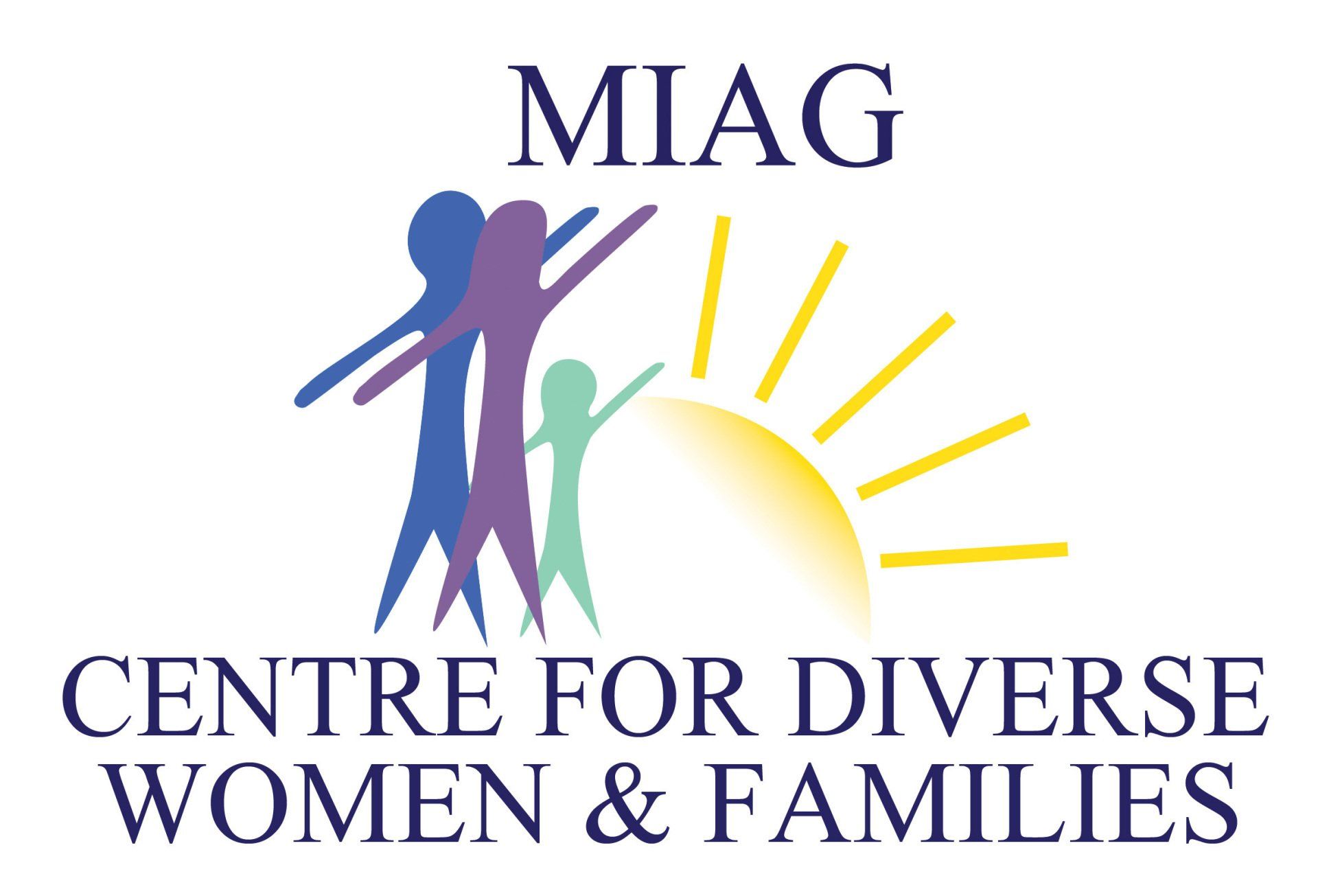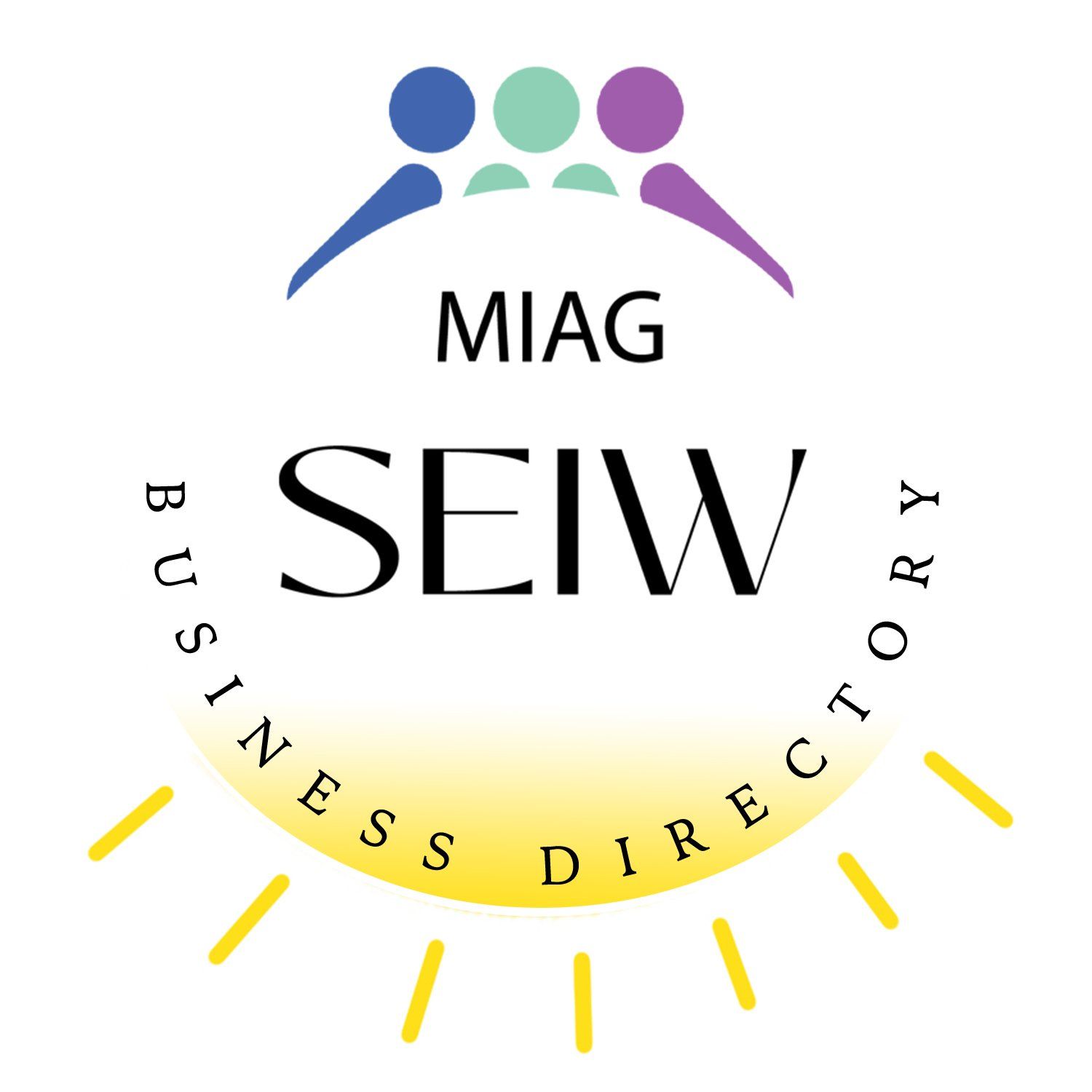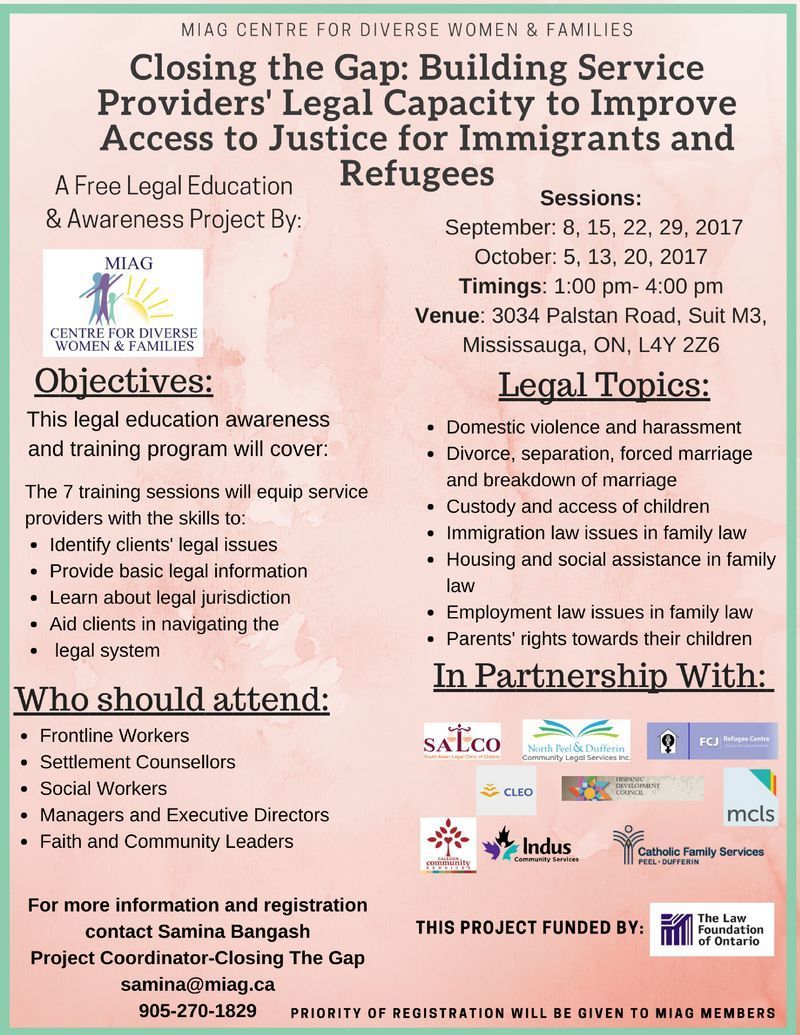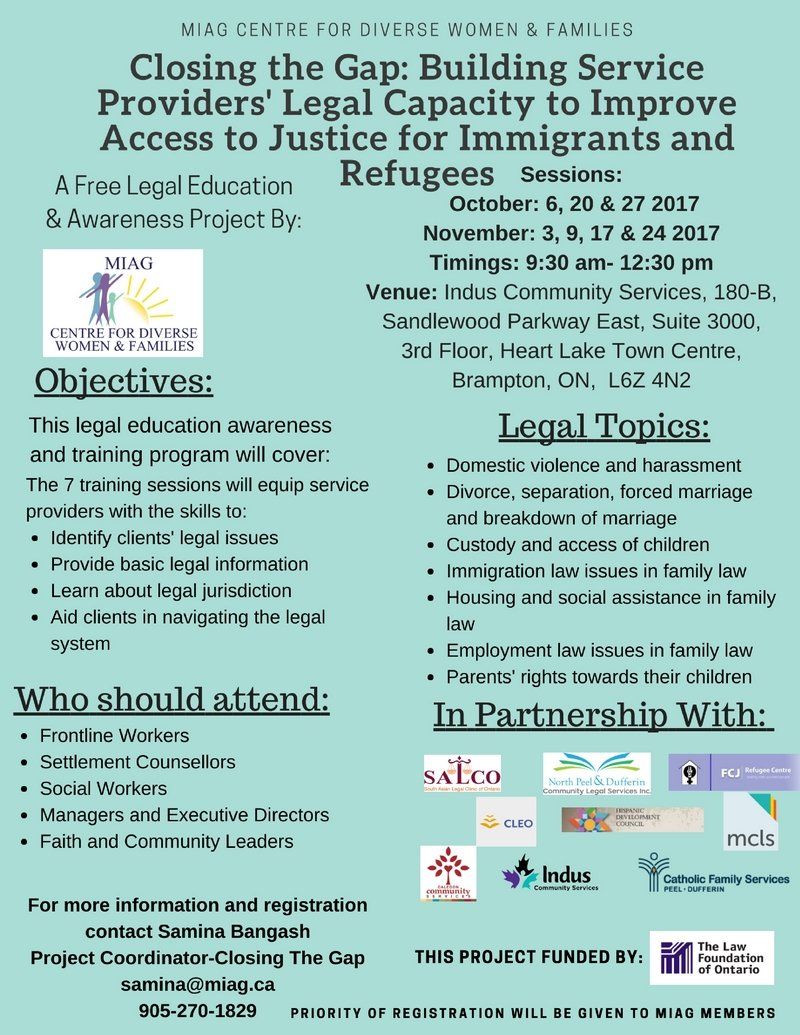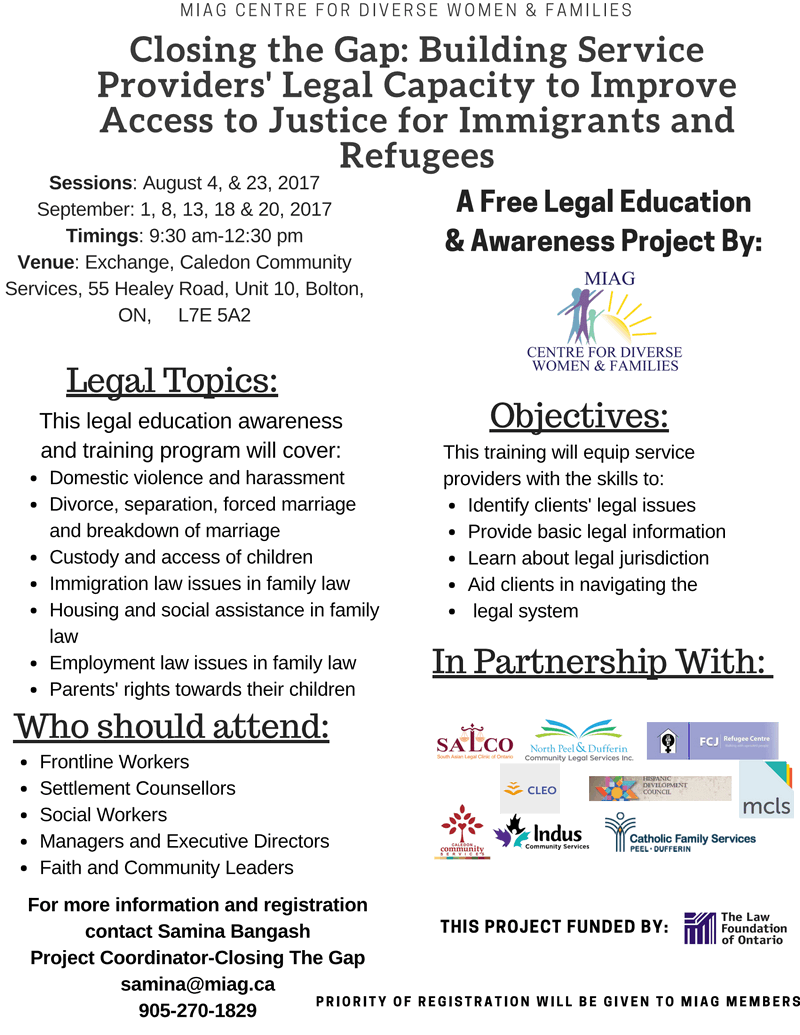'Closing the Gap' Project
Building Service Provider’s Legal Capacity to Improve Access to Justice for Immigrants and Refugees
In partnership with legal experts, MIAG has been training service providers who work directly with immigrants and refugees to equip them with the knowledge, skills, and tools to provide basic legal information and aid clients in navigating the legal system. Through this project a number of legal education training rounds are being offered. It tackles the issue of violence (domestic, sexual, harassment) and child welfare from a legal perspective. The training is designed for front line workers, managers; settlement workers; counselors as well as community and faith leaders. It comprises of 7 workshops and is repeated five times throughout the year (two in Mississauga, two in Brampton, and one in Caledon). The project’s ultimate goal is to enhance the access of justice to immigrants and refugees in particular given the events that have unfolded over the past year – the arrival of 25,000 refugees to Canada.
Over 11,400 Syrian refugees have settled in Ontario, almost half of which reside in the GTA. Thus far, over 75% of the refugees Canada has received are women and children. Mississauga, has the third largest population of Syria decedents after Toronto and Montreal. The impact of such a sudden arrival of refugees has overwhelmed service agencies a phenomenon that has not occurred since the ‘90s. MIAG’s initiative will respond to these anxieties by building the capacity and skills of service providers to respond to clients’ basic legal needs.
MIAG is pursuing its proposed activities because from our observations and from various research we have noticed that low-income and isolated people – racialized groups, such as immigrants and refugees – are most likely to seek out, or rely on, in-person support from trusted intermediaries, such as social service workers and community leaders to receive legal information (CLEO, 2013; Cohl & Thomson, 2008).
In order to ensure that immigrants and refugees receive legal services which are equitable, various service providers providing settlement, healthcare, education, advocacy, and ethno-cultural supports must be well informed. Different educational tools are utilized in the training rounds. The project is funded by the Law Foundation of Ontario.
Our Programs
Resources
All Rights Reserved | MIAG Centre for Diverse Women & Families
